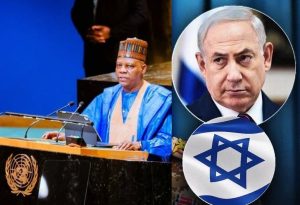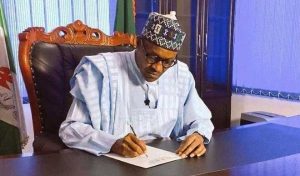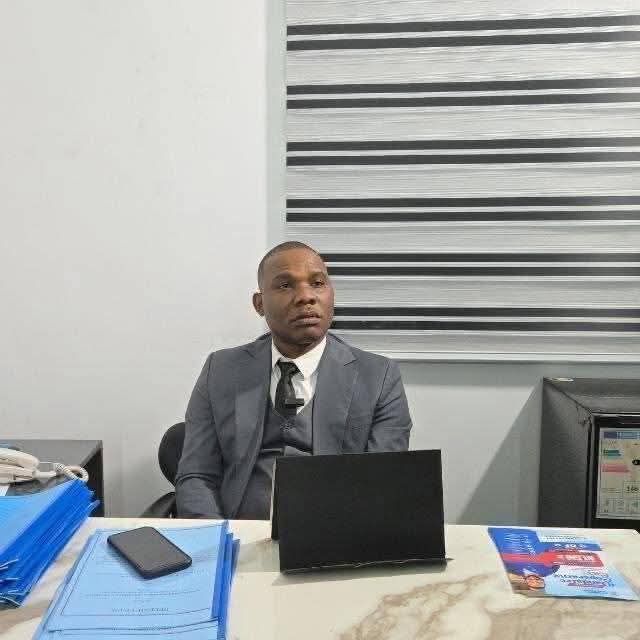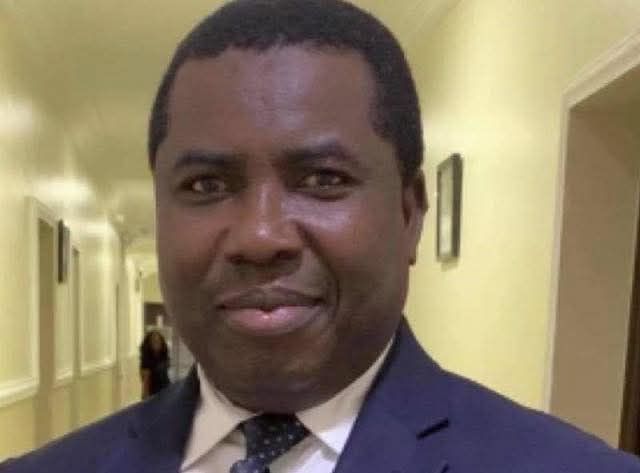
President Buhari Increases Fuel Pump Price From N121.50 to N143.80/litre.
The President Muhammadu Buhari-led Federal Government Wednesday increased the price of petrol from the current price of N121.50 to N121.50 per litre to a new band of N140.80-N143.80/litre for the month of July.
This was disclosed by the Petroleum Products Pricing Regulatory Agency (PPPRA) on behalf of the government.
READ: At Virtual Flag-off Ceremony of AKK Pipeline Project, Buhari Lists Benefits
PPPRA, in a circular on Wednesday to all petroleum products marketers, said: “After a review of the prevailing market fundamentals in the month of June and considering marketers’ realistic operating costs, as much as practicable, we wish to advise a new PMS pump price band of N140.80-N143.80/litre for the month of July, 2020.”

The regulatory agency had few days ago said it would no longer fix the pump price of Premium Motor Spirit (PMS) also known as petrol for marketers.
PPPRA Executive Secretary, Saidu Abdulkadir, stated this in a statement in Abuja, noting that the deregulation of the downstream sector was dependent on the enforcement of appropriate laws by strong regulatory agencies, hence its continued intervention.
Abdulkadir, however, said the agency would constantly, on a monthly basis, develop a guiding price for the commodity, with which it would advise marketers.
“For the purpose of emphasis, let me reiterate that different sectors of the polity operate under the guidance of national regulators.
“The Central Bank of Nigeria (CBN) regulates the banks and the financial sector; Nigerian Communication Commission (NCC) regulates telecommunications; National Insurance Commission (NAICOM) regulates the insurance sector and the same exists for operators in Nigeria’s downstream petroleum sector.
“To this end, it is not out of place for the agency to provide a guiding price band with the aim to protect consumers against price gouging.
“It is important to also state that there is nowhere in the world that deregulation means total lack of control, supervision or oversight.
“While the Market-Based Pricing Regime is a policy introduced to free the market of all encumbrances to investment and growth, it should not be misconstrued to mean a total abdication of government’s responsibility to the sector and citizenry,” he said.
Abdulkadir added that PPPRA would no longer fix prices, but rather provide a guiding price band by monitoring petroleum products prices daily.
This, he explained, was being done using the average price of the previous month to determine prices for the following month, for appropriate cost-reflective pricing that ensures reasonable returns to Oil Marketing Companies (OMCs).
“This methodology is in line with international best practices which range from bi-monthly to monthly price reviews.
“Nigeria adopted the monthly review model considering the average duration for the importation of petroleum products into Nigeria from the closest spot market; North-West Europe (NWE) to West Africa (WAF) is about 30 days.
“This period encompasses the Import Financing Process to delivery at retail outlets,” he said
Abdulkadir added that the new pricing regime would encourage oil marketers to resume supply of PMS, leading to further value creation in the downstream; foster job creation and ensure reasonable returns for investors.
PPPRA boss noted that this would create healthy competition among marketers, enhance value for consumers and make funding available for other important infrastructure.
He said PPPRA would continue to regulate the downstream petroleum industry, irrespective of the deregulation of the sector.
Abdulkadir explained that the move was to prevent petroleum products marketers from exploiting consumers and help to enforce the appropriate laws guiding the industry.
Please drop your thoughts in the comment box below and share this post with someone.
Follow us on Facebook, Instagram & Twitter to keep up to date with trending news as it happens.
























